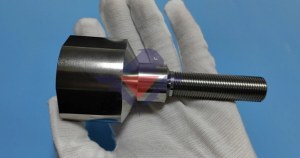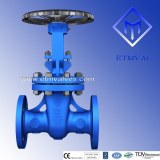CNC Swiss Precision Machining Services
CNC Swiss machining is a specialized type of precision machining that involves the use of a sliding headstock lathe to produce intricate parts with high accuracy and tight tolerances. This process is particularly well-suited for small, complex parts that require multiple operations to be performed in a single pass. CNC Swiss machining is known for its ability to produce parts with very tight tolerances, high surface finishes, and excellent straightness, roundness, and concentricity. Falcon's Swiss machining technology is widely used in industries such as medical, aerospace, optics, and electronics, machine & equipment, automotive precision machining, where precision and quality are of utmost importance.
What Are the Advantages of CNC Swiss Precision Machining?
High precision and accuracy: CNC Swiss machining equipment uses advanced technology and specialized tools that allow for very tight tolerances, resulting in parts with exceptional precision and accuracy.
Consistency and repeatability: Highly automated lathe, ensuring consistency and repeatability in the manufacturing process, which is critical for high quantities production.
Multi-axis machining: The Swiss lathe has multiple axes that allow for complex geometries and shapes, which is essential for producing intricate parts and components.Reduced lead time: CNC Swiss turning machining is known for its high efficiency and fast production times, resulting in reduced lead times and faster delivery of parts and components.
Versatility: It can work with a wide range of machining materials, including metals, plastics, and composites, making it ideal for various industries such as aerospace, medical, and automotive.
Cost-effective: CNC Swiss machining is a cost-effective solution for high-volume production runs, as the high level of automation reduces labor costs and minimizes waste.
Why Is It Called Swiss Machine?
The term "Swiss machine" typically refers to a type of precision lathe called a Swiss-type lathe, also known as a Swiss screw machine. This type of lathe was originally developed in Switzerland in the late 19th century for the watchmaking industry, which required very precise and complex parts to be produced in large quantities.
Over time, the use of Swiss-type lathes has expanded beyond the watchmaking industry to many other industries that require high-precision parts, such as medical, automotive, aerospace, optics, and electronics, mechanical micro machining & equipment.
What Makes a Swiss Lathe Different?
One of the key features of a Swiss lathe is its sliding headstock. This allows the machining materials being machined to be held stationary while the cutting tool moves in and out to make precise cuts. This design reduces vibration and enables very high accuracy and precision in the machining process. Another feature that sets Swiss lathes apart is their ability to perform simultaneous multi-axis machining. This means that the lathe can perform multiple cutting operations at once, using a variety of tools, to create complex parts with multiple features.
5 Tips To Know About Falcon Swiss Machining Capabilities
1. High Volume Swiss Screw Machining Capabilities
In the Falcon workshop, we have more than 300 pieces of equipment. Most Swiss-type lathes in Falcon are with 12 axes. Their unique cutting, drilling, and production cycle time optimization capabilities are commendable. They can produce precision parts with complex geometries in a single operation, with tolerances as precise as 0.0002 to 0.0005 inches.
2. Certificate & Quality
ISO9001, ISO16949, ISO13485certified, PPAP, and FMEA for automotive and medical clients.
3. Micromachining for Miniature Machined Parts
Falcon Swiss Machine Shop possesses the core technology for manufacturing micro precision parts, including micro turning, micro drilling, and precision WEDM, which can meet the stringent requirements of global customers for micro precision components manufacturing.
4. Custom Precision Swiss Turned Parts
Falcon has mastered at least 475 material processing methods, 28 CNC techniques, and 30 kinds of surface treatments. Turn your papers into parts in a quick turn.
5. R&D Support
At Falcon, you can enjoy a one-stop CNC Swiss precision machining service from prototype to high-volume production. First-class Swiss lathe combined with auxiliary facilities such as automatic feeders and robots, we can produce 1,000,000 precision CNC Swiss turning parts for you within one month.
What Are the Application of CNC Swiss Type Machining?
Swiss-type machines are known for their ability to perform multiple operations in a single pass, making them highly efficient and cost-effective for the mass production of small components. Some of the common applications of Swiss-type machining include medical, automotive, aerospace, optics, electronics, machine & equipment, etc. Falcon CNC Swiss-type machining is a versatile technique that can be used to produce complex and CNC machining small parts with high accuracy and repeatability, making it an ideal choice for a wide range of industries.
Swiss Machining for Medical Application
At Falcon, we hold various certifications such as ISO 9001, ISO13485, and FDA, and have strict PPAP compliance. We specialize in developing precision CNC machining components and precision equipment parts for the medical industry. Falcon always adheres to the most rigorous quality testing processes to ensure that we provide our medical customers with high-heat resistance and corrosion-resistant custom swiss screw machining parts.
Commonly Swiss machined medical parts include:
Catheters
Handheld surgical instruments
Ultrasound machines components
Bolts
CT scanners components
Implants
Pins
Shafts
Swiss Turning Services for Optical Components
Swiss Turning is crucial for the modern optical industry. Our specialized 12-axis Swiss machining lathe is ideal for producing optical equipment components with strict tolerances for micro and non-spherical optical parts to meet specific optical applications. We are capable of producing any type of CNC Swiss turning parts according to customer requirements.
Commonly CNC Swiss machined products used in the optical industry include:
Microscopes
Telescopes
Cameras
Lens accessories
The Electronic Industry Trusts Falcon's CNC Swiss Precision Parts
Falcon is a professional CNC Swiss machined part manufacturer for the electronic industry. Falcon takes advantage of multiple top-level CNC Swiss lathes to produce the best precision components for electronic equipment. Micro machining service technology produces a large number of outstanding electronic components, greatly satisfying the electronic industry customers' demand for high-performance-cost ratio parts.
The parts our customers repeatedly ordered include:
Reflectors
Heat sinks
Electronic pins
Miniature screws
Other miniature electronic components
Swiss Screw Machined products for Machines and Equipent
Fasteners like screws are particularly important for mechanical equipment. The quality of these fasteners directly affects the safe operation of the mechanical equipment. With years of experience and a rigorous quality inspection system, Falcon provides our mechanical equipment customers with many high-quality fasteners, all of which have a 100% qualification rate.
Our Swiss-type CNC lathe is used to manufacture parts for mechanical equipment, including:
Bolts
Nuts
Rivets
Threaded inserts and rods
Washers
7 Design Tips for CNC Swiss Machining
Design tips for CNC Swiss machining are important for ensuring that parts are machined accurately, efficiently, and cost-effectively, while also meeting the required performance specifications. Swiss machining is quite different from other traditional machining way, Falcon engineers have summarized at least 7 points of advice to help you accurately design Swiss machined parts. Here are some design tips for CNC Swiss machining:
1. Minimize part length: Swiss-type machining is best suited for producing long and slender parts. If possible, try to design parts with a long aspect ratio, as this will help to improve the accuracy of the machining process.
2. Avoid sharp edges: Sharp edges can be difficult to machine accurately and can also cause tool breakage. Try to design parts with rounded edges and contours, as this will help to reduce stress on the cutting tool.
3. Optimize material usage: Swiss-type machining can be expensive, so it's important to optimize material usage as much as possible. Try to minimize the amount of material that needs to be removed during the machining process by designing parts with the proper dimensions and tolerances.
4. Minimize part complexity: While Swiss-type machining is capable of producing complex parts, it's generally better to minimize part complexity wherever possible. Simple, straightforward designs are easier to machine accurately and quickly.
5. Consider tool access: Swiss-type machines have limited tool access due to the guide bushing that supports the workpiece. Make sure to design parts with tool access in mind, and avoid designs that require tools to be inserted at awkward angles.
6. Use appropriate materials: Swiss-type machining is best suited for producing parts from materials such as stainless steel, titanium, and other high-performance alloys. Make sure to choose materials that are appropriate for the application and machining process.
7. Design for efficient production: Finally, it's important to design parts with efficient production in mind. Try to minimize the number of operations required to produce each part, and consider using common tooling and fixturing to reduce setup time.
CNC Swiss Machining FAQs
Q: What is Swiss-type machining?
Swiss-type machining, also known as Swiss screw machining or Swiss turn machining, is a high-precision manufacturing technique used to produce small, complex parts with tight tolerances. It is named after the country of origin, Switzerland, where the technique was first developed in the late 19th century for producing precision watch parts.
In Swiss-type machining, the workpiece is held in a collet and rotated while a cutting tool moves in the opposite direction along the length of the workpiece. The cutting tool is supported by a guide bushing that provides additional stability and helps to minimize deflection. This allows for very precise and consistent cuts to be made, even on very small and intricate parts.
Swiss-type machining is often used in industries such as medical, automotive, aerospace, optics, and electronics, machine & equipment, where small, complex parts with high levels of precision are required.
Q: What is Swiss vs CNC?
Swiss and CNC are two different types of machining processes used in the manufacturing industry.
Swiss machining, also known as CNC Swiss turning, is a specialized type of machining used for producing small, precise parts. It involves a sliding headstock lathe where the workpiece is held in place and rotated while the cutting tool moves back and forth. CNC Swiss machining is particularly useful for producing parts with a high length-to-diameter ratio, as well as for producing small parts with complex shapes and tight tolerances.
CNC (Computer Numerical Control) machining, on the other hand, is a general term that refers to a variety of machining techniques that are performed using computerized controls. CNC machines are programmed to control the movement of cutting tools and workpieces with a high degree of precision. cnc swiss precision machining can be used for a wide range of materials, shapes, and sizes, and is often used for both prototyping and large-scale production.
While Swiss machining and CNC machining both involve the use of computerized controls, they are different in terms of the type of machinery used and the specific applications for which they are best suited. Swiss machining is typically used for small, intricate parts, while CNC machining is used for a wider range of parts and materials.
Q: Where is Swiss Machining Used?
Swiss machining is commonly used in industries such as medical, automotive, aerospace, optics, and electronics, machine & equipment, where precision and accuracy are critical. It is particularly well-suited for producing small, intricate parts that have a high length-to-diameter ratio, such as screws, pins, and connectors.
Some specific examples of parts that are commonly produced using Swiss machining include:
Dental implants and orthopedic screws in the medical industry
Aerospace fasteners and hydraulic fittings in the aerospace industry
Electrical connectors and contacts in the electronics industry
Localisation : #3, Xiaobu 2nd Road, Guanjingtou, Fenggang, Dongguan, China, 523681 dongguan,
Personne à contacter : con Fal, +18 5 89 03 24 77









